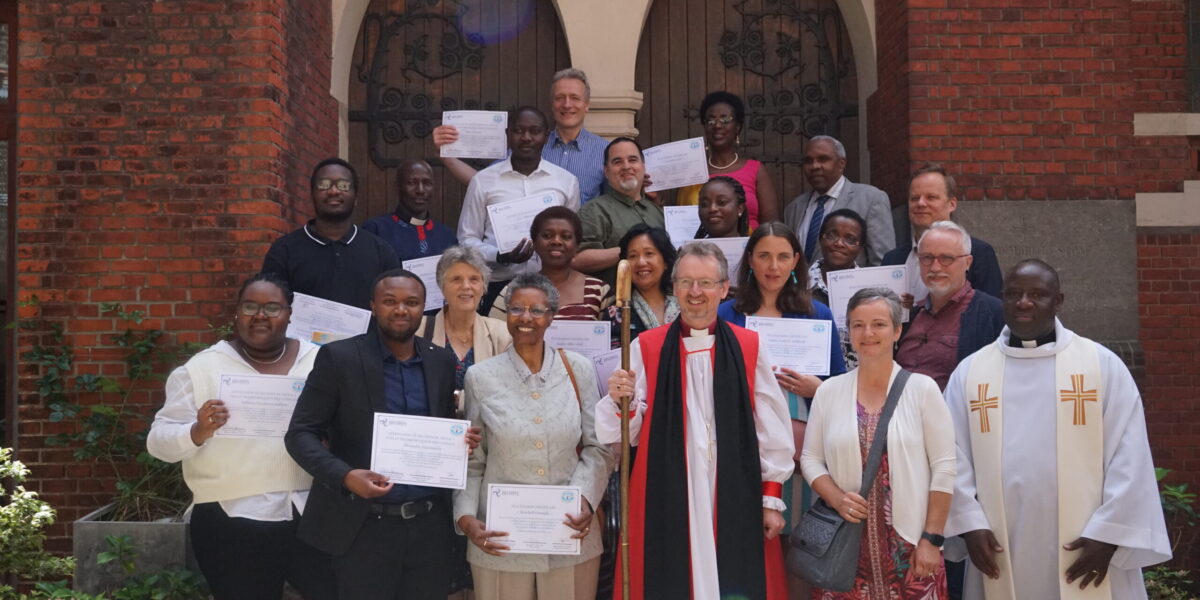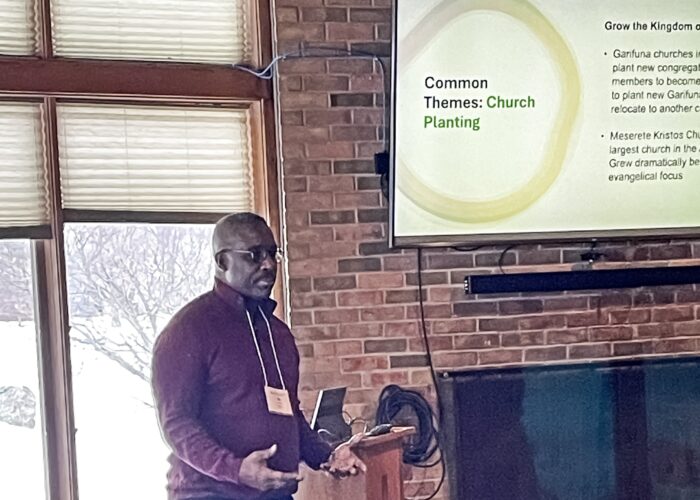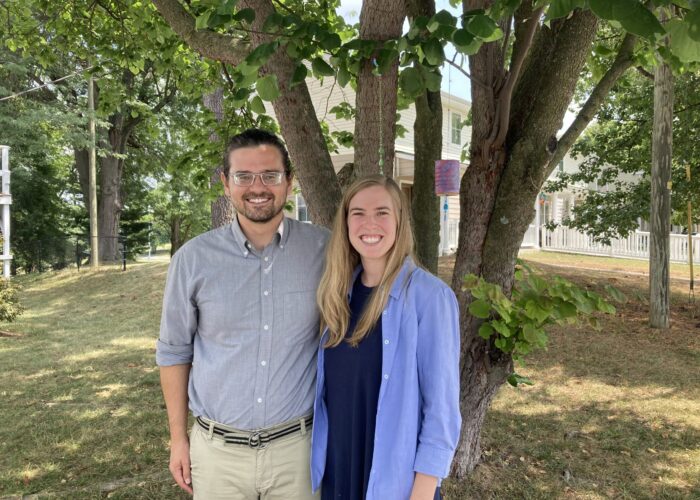Holy Trinity Brussels (Belgium), located near the headquarters of the European Union, is working to transform conflict at all levels, from the interpersonal to the international.
On May 21, 19 graduates received certificates of completion for a new peace and conflict transformation program in a glorious ceremony at Holy Trinity Brussels (Belgium).
This celebration was the first fruit of a vision that was born two years ago, at the beginning of the COVID-19 pandemic. Jean-Bosco Turahirwa searched for a way to address the diverse needs of the large Anglican congregation, in which he serves on the leadership team. Holy Trinity Brussels is located near the headquarters of the European Union, and members come from more than 45 countries. There are four worship services on Sundays.
Turahirwa developed a three-level course in peace and conflict transformation, in response to the stressful situations in which his parishioners find themselves, beginning in their families and workplaces and extending to international discord.
When Turahirwa searched for people who might share his passion for peacemaking, he thought of the Mennonites. From 1950–2010, Mennonite Board of Missions, a predecessor agency of Mennonite Mission Network, engaged in a variety of ministries in Belgium, including the Brussels Mennonite Center, founded in 1980. Turahirwa was the accountant for the center from 2001-2005 and engaged in conflict management through mediation. It was there that he came to know Juan Romero, who directed the center’s mediation work in French-speaking Africa and Europe.
From Romero, Turahirwa learned that "reconciliation is not just a branch of the gospel of Jesus Christ; reconciliation is the gospel."
Because the Brussels Mennonite Center closed its doors in 2006, Turahirwa contacted Sharon Norton, Mission Network’s co-administrator for Africa and Europe. His description of the need for conflict mediation in the interpersonal realm, as well as between the various nationalities represented in Brussels, resonated deeply with her.
"While Holy Trinity Brussels lives its diversity well, conflict and challenges are not far away in such a context," Norton said. "Jean-Bosco and I could agree that in many communities around the world, disparities between immigrants and [established residents] have increased during the pandemic. This adds no small amount of tension, and even open conflict among different racial/ethnic groups."
Turahirwa believes that, to address the more systemic manifestations of conflict, it is important to begin in people’s everyday lives, where the cumulative stress of being forced to isolate in shared living spaces has added to the normal tensions present in families and communities.
"At Holy Trinity, we propose a program for all people who want to transform their conflict positively," Turahirwa said. "Basic interpersonal conflict and communication skills are often lacking."
Thus, the first component of the training program lays cultural and theological foundations for understanding the peacemaking imperative. It also prepares people to work for peace and reconciliation in their own lives — understanding their emotions, analyzing the roots of conflict, and learning skills to address it among their families and in their communities. The second part builds on level-one learning to help participants become third-party mediators and develop tools in non-violent intervention. The third level is to train trainers, who will be able to multiply and spread the good news of the gospel of peace beyond Brussels.
Oscar Chavez, one of the graduates, found it interesting to see how culture and personality impact how we react to conflict.
Another graduate, Maria Umutesi, said, "I’m ready to go out there, into the community, and apply what I learned as an ambassador of peace."
To learn more about Holy Trinity’s Peace and Conflict Transformation program, including testimonials from participants, watch the above video.
Turahirwa has personally experienced many levels of violence in Rwanda. He fled from his homeland in 1994. He completed his studies for his first Master of Theology in Cameroon. When he arrived in Belgium in 2000, he had the opportunity to study Anabaptist theology in Bienenberg Theological Seminary in Switzerland. He is currently finishing his thesis for his second master’s degree at The Free Faculty of Evangelical Theology at Vaux-sur-Seine in France. He is an ordained priest in the Anglican Church (Church of England).
Mennonite Mission Network has committed to support the Holy Trinity Brussels peace and conflict transformation program for five years. The Schowalter Foundation also gave a grant to the program.
"I speak on behalf of Holy Trinity Brussels, when I say we have no words to thank Mission Network for the huge support and encouragement," Turahirwa said. "We are extremely happy to be in partnership with Mission Network to further this noble ministry of peace and reconciliation."




